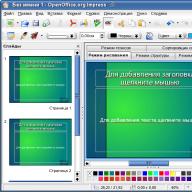PHOTO Getty Images
Click-click-click. Like it, like it, like it... The brain works on autopilot. Eyes glaze over. You spin and spin an endless feed, liking pictures, updates, statuses, and links to anything. Social media, at its worst, hypnotizes us to the point of nausea. What remains of what we read and why do we like it even when we are not happy with what we have written?
"Like" is a form of recognition
Log in to Facebook. Click the "like" button. What happened? The act of recognition. There has been social interaction between at least two people. You can call "like" an example of virtual empathy. We all understand what it means to empathize with someone. It is the ability to understand and share the emotions or situation of another person. By clicking the "like" button, we establish a connection. We recognize the existence of the interlocutor. We don't necessarily like what we see. But we seem to be saying, “I see. I understand. I'm with you".
"Like" is an attempt to acquire social capital
What is social capital? The Encyclopedic Dictionary explains that it is a network of social ties between people, their common values and norms of behavior that contribute to mutually beneficial social cooperation. In the networked world, social connections are formed on the Internet. It follows logically that transactions with social capital are carried out online. Mutually beneficial social cooperation occurs when we click "like". When we realize that social interaction takes place on the Web, and "like" is one of its main tools, everything takes on a new meaning.
"Like" is a way to express yourself
The Time weekly recently described the algorithm of Facebook's activity. The introduction of the "like" button in 2009 made it possible to "sharpen" the tape for what the user enjoys. An important parameter is your proximity with certain people, and it is determined by the number of "likes" that you put on their posts.
The observation of journalists was confirmed by scientific research. The US National Academy of Sciences recently published the results of a study involving nearly 60,000 Facebook users. Its authors concluded that the use of “likes” in their algorithm makes it possible to determine the user’s skin color with 95% accuracy, sexual orientation with 88% accuracy, Republican or Democratic party affiliation with 85% accuracy, gender with 93% accuracy, and age with 75% accuracy.
"Like" is an attempt to get psychological feedback
When we “like” someone’s status or photo, we mean that we will receive a response “like” from them. Few of us are willing to admit it, but the more “likes” we get, the stronger our confidence that we are loved. We like being liked, and the number of “likes” is just as important to us as the quality. So we click "like", counting on reciprocity.
And if we do not get the desired number of "likes"? Status for us is an extension of our "I", and if it is ignored, we perceive it as a neglect of us personally. We don't actually go to Facebook to find out how others are doing, do we? We want to get something important for ourselves. We like it for the same reasons we go to parties or bars or meet friends. It's about psychological feedback. We want to be appreciated, recognized and loved for who we are.
“Like” is often a substitute for deeper interaction
Likes have not only positive, but also negative sides. For example, they blur deeper levels of interaction. "Like" is just a mouse click. Relationships and conversations are work. With the number of friends we make on Facebook, it's impossible to find the time to build real relationships. "Like" is a form of social connection without risks and obligations.
And now what do we do?
Don't get depressed, don't leave Facebook forever. Just realize what a social network is and get the most out of it that it can give.
See the Marketing Land website for more details.
0
It seemed that the Internet appeared quite recently, and behind them, like mushrooms after the rain, various social networks popped up. After they came up with Like and Dislike, it became clear that this was not the end of the matter. Indeed, many citizens, instead of waiting for Lois from users, began to like themselves. After this phenomenon became widespread, the term "Samolaik" was even coined. What does a selfie look like? What does Samolike mean??
On reflection, it is clear that liking your posts VC, it's bad manners. However, if you have published something in your group, then you can put your hard lois to celebrate. However, another option is to give yourself a like when you see that their number does not reach a tidy sum.
Samolike- these are likes that people put on themselves, there is no point in this, advanced users sometimes compare these "arts" with a blowjob to themselves

 However, there is another option why people are engaged in self-likes. For example, you posted a great track on your wall, I can like it, because I really like the music. In addition, by
However, there is another option why people are engaged in self-likes. For example, you posted a great track on your wall, I can like it, because I really like the music. In addition, by Today, 250 million people watch or post Stories daily, and Russia is one of the top five countries with the most active users.
Something similar happened with the Russian segment of Facebook: some of the writing authors went to Telegram and started channels there. According to many, this happened for the same reason: there are no likes, comments in Telegram, and your self-esteem does not depend on their number. There, if your brilliant text has zero likes, this is normal, because they are not provided in principle. While if your Facebook post has zero likes, if not a tragedy, then definitely a spoiled mood.
Why are we so dependent on whether they like us, why are we always waiting for the attention and approval of not only our environment, but often strangers unknown to us? The roots of the problem can be found in childhood, for example, children of alcoholics often seek such approval, who have received less attention from their parents and now expect it from everyone they meet. Despite the fact that there are many alcoholics in Russia, this explanation is not enough. Children of even relatively normal parents also experience when others do not like them.
Neuroscientists attribute this need to ancient brain responses. When we are not recognized by society, even a virtual one, we respond like primitive people, the brain does not change very quickly. And for primitive man, there is nothing worse than being rejected by a pack, because alone in the wild you most likely will not survive. If you don’t get food for yourself, if you don’t find shelter, in the end, you will just be eaten by a lion. Roughly speaking, the fear of not being recognized is the fear of death.
Popular
Researchers note that people who are unpopular on social networks experience real despair, and selfies that gain few likes lead to a decrease in self-esteem.
And not only to decrease, but also to an inadequate assessment of their appearance - this is the conclusion recently made by social psychologists at the University of Toronto. They found that people who often post selfies think they are much more attractive than they really are.
Perception is distorted, a person forms his own idea of himself through the filters, always seeing himself in the right light and from the right angle. On this occasion, the words of Andy Warhol are recalled, who said that “the beauties in the photographs are different from the beauties in the flesh. It must be hard being a fashion model because you want to look like your own photo, but that's impossible." And today, a fashion model is anyone who has a phone with a camera and access to social networks.
Healthy self-irony always helps to solve problems with fragile self-esteem. For example, the writer Radmila Khakova conducted a bold experiment and went on a date with men who had only seen her “dress photos” on the Internet. The courage lay in the fact that she came to the meeting “without filters”, that is, completely “on the tin”: without makeup, in comfortable clothes, without heels, in funny glasses and with a ponytail on her head. There were some interesting reactions, but it all ended well.
In the end, the most important thing is to like yourself. Not literally, of course, but figuratively. Try to love and accept yourself completely, and then no assessments of others, no likes, or their absence can shake your self-confidence.
Text: Syuyumbike Davlet-Kildeeva
"Like" is the easiest way to receive and express petting on the internet.
1. The need for stroking
In psychology, there is the concept of stroking.
Stroking is an action in which a person directs his attention to a partner, and, turning to him, signals that he recognizes his presence or himself as a person. At the same time, the partner experiences certain emotions and feelings. Stroking is not necessarily physical touch. Stroking is both a smile, and a compliment, and support, and words, and active listening, emphasizing the significance of a person.
There is an opinion that stroking is a need, the same as the need for food, water, air, warmth. Lack of strokes makes people emotionally vulnerable and susceptible to manipulation.
A person who lacks strokes spends a huge amount of energy trying to satisfy his "hunger" for strokes.
People receive strokes in a variety of ways. Some become diligent and responsible employees. Others deserve to be stroked in fights. Still others attract attention to themselves by carefully monitoring their appearance. And the fourth receive strokes by manipulating others.
2. Ways to get strokes
According to the method of obtaining stroking, there are:
Unconditional- strokes received for the fact that a person is the way he is.
Conditional- strokes that a person receives for doing or not doing something.
3. Conditioned stroke reflex
To get love (“like”), approval, praise or attract attention, you must definitely do something. Post a funny picture, write an interesting post, share the news, change your profile picture, show new photos. When a user posts, it shows that he is alive, that he can be loved and interacted with. With users who are on the sidelines of the news feed, there is little interaction.
People who have harmonious relationships in the family and in their personal lives do not urgently need strokes and their activity in social networks is much less than that of people who fill in gaps in their personal lives with social networks.
Also, the activity of such people is not aimed at seeking approval, but at obtaining information and communication.
Why do people "like"
1. "Like" as non-verbal communication
"Like" is a convenient way to express yourself. Express your presence without engaging in correspondence. Comments require a response, time is wasted writing and responding. You do not need to waste time and energy on “like”.
People use "likes" to get attention. Sometimes they cannot express themselves to another person in person, but if they share his views, then they often do not mind showing it. You can put a "like", thus expressing involvement in the opinion of the author of the post.
2. Tendency towards non-verbal communication
Verbal language on the Internet is being replaced by sign language. With the growth of information, a new language of communication was needed. People are commenting less and liking more and more. "Like" is a concise expression of a relationship.
Experts notice a trend that there are fewer comments, but more reposts and likes.
3. "Like" as a compliment and a way to draw attention
“Like” is also a convenient way to express a compliment to a person, draw attention to yourself and, perhaps, later get to know each other personally.
Mechanism: Users of a social network start meeting strangers with a "like" - like a post, and only then write a message or add to friends. First a compliment, then a conversation.
4.Functions of the "like" button
[+] social stroking: if it is not enough in the real world, then the user constantly returns to the network and seeks attention there. On a social network, strokes are easier to get;
[+] non-verbal communication;
Like problem
The like button is an approval button, and this verb is an obstacle to sharing some news. That is why at one time facebook planned to allow users to create their own verbs for the "like" button.
Once a friend from Ukraine wrote to me. He helps the fund to help orphans. They integrate the news into social networks, and face the problem that, for example, putting "likes" on the article "Lisa N. needs a blood transfusion" is at least doubtful.
They wondered what would happen if they launched an analogue of "like" - a button with the wording "I care about this" or "I care about this."
Solution
1. Understand what such a button will do;
2. Choose a verb to cause dissonance between the action and the button press.
In social psychology, there is a concept that if a person has made a promise to do something, then he is more likely to do it if he did not make a promise.
Robert Cialdini in The Psychology of Influence wrote that a person is more likely to perform an action if he made a promise than if he did not, because people are consistent in their actions and want to appear so to themselves.
On sites in party announcements, the "I'll go" button is introduced for the same reason. This is also an obligation.
In this case, you can enter the “I will help” button, when clicked, a list with help options would drop out.
Practical use (makag true story):
Result and benefits: no "boat", all delivered lois - delivered by living people, voluntarily. These lois are unlikely to disappear and every day they give a "Social Signal" both for other users (transitions from the social network), and for Yandex and Google +1 small ranking factor in search engines.
Example #2. Stuck on a one-page

Result and benefits: This block does not seem to perform any function, but from the outside it seems that this is an entrance to the site through social networks. As a result - a certain number of loys. The video is also inserted for a reason - so that they don’t quickly leave the one-page site, but watch the video, thereby increasing the “time spent on the site” factor. Why this factor is so important and all sorts of Herods love to manipulate it so much, you can find out in Google at the request of "behavioral factors".
Example 3: this topic is almost letter-to-letter copied from a third-party resource, only the design has been slightly changed. In addition, under the pretext of "sharing a practical implementation of how to grab lois" - I managed to shove as many as three links to my shit sites and there is a 50% chance that I will receive "pats" on the topic itself from those who have read it to the end.
That's all, everyone will draw conclusions for himself. I hope it will be useful -)
By the way, if you have a cat, or a cat, or a dog - do not pull, get distracted (right now) and pet the animal. It doesn't cost you anything, and she loves you sincerely. Pet the cat bro!
I read the unwritten rules of behavior on the Internet a long time ago. There was also about liking your own photos and publications, they say, this is a bad form. I decided to find out what people on the network think about this and turned this question to search engines. Realizing that the opinions were divided approximately 50/50, I decided to ask my friends and subscribers on social networks.
Below I will give the comments that I managed to collect under my posts in VK and Instagram. The original text of the authors has been preserved.
Opinions against liking your own posts
I put them so that later I can find them in my bookmarks. I don’t see the point in liking my posts and everything in a row)
Mikhail, VK
Likes in VK have generally turned into alms. In no other social network are people so greedy to like as they are here. And VK himself reduced the like to absurdity. Therefore, many like themselves, so that, well, at least someone.
Sergey, VK
I never like myself, but do you like a post?
Anastasia, Instagram
I also find it strange to like my own posts, photos, etc. It's like "I'm so awesome, few likes and I'll like myself"
Ekaterina, Instagram
I don’t like my posts .. it’s logical .. if I wrote it ... then I like it .... why else like it?
Elina, Instagram
I don’t like my photos) is it true that one time in contact was missing one? up to 100, so I closed it.))
Aigul, Instagram
I don't like my posts, I'm embarrassed??
Liana, Instagram
Opinions “for” likes on your photos and posts
I don't see anything criminal in this. Because I like my post or photo?
Liana, VK
I always like myself)? I think my posts and photos are cool, so put likes??
Albina, VK
I like my posts. I like?
Elvira, Instagram
Do I always like myself? ❤ And I re-read my post a couple of times? I remember when you told me about bad taste??? And you like it!
Elvira, Instagram
And I'm the first to like my post, as if showing an example to everyone else - do as I do! And bad form is to have an account and not write anything, bad form is when there are no thoughts in the head, bad form is when there is a photo on a soap dish?
Albina, Instagram
I always like my post))) for some reason I don’t understand why this is a bad form? Do you like the post and photo ✌?
Anastasia, Instagram
I like my posts when I write about my stars in them))) or when I write about Adelinka))) well, why not like something ???
Laysan, Instagram
I like it, and my conscience torments me, if I sent a heart to myself, I come back and like it. This is my post and I love it!
Inna, Instagram
Neutral opinion
It didn’t occur to me to like my own) but no, Dinara comes in periodically and likes my photos from my profile that she likes
Nurzilya, Instagram
Wow! From scratch, you can create statistics! I like some of my posts .. and it didn’t even occur to me that this could be abnormal? logical or not logical? also do not care)
Milyausha, Instagram
I sometimes like my posts too) why not?)
Elina, Instagram
I think if there is such an opportunity, then why not take advantage of it ?! No wonder they gave you the opportunity to like your photos?
Guzel, Instagram
So like your posts or not?
After collecting all the comments, I got something like this:
- 8 people don't like their posts
- 8 people like
- 4 people, it can be said, abstained. And they like it, and they don’t like it, and they don’t bother about this topic.
Instagram users were the most active. But there is no unequivocal opinion on this matter and it is unlikely to be. Everyone does what they want.
In my opinion, liking your posts and photos is a bad form.




